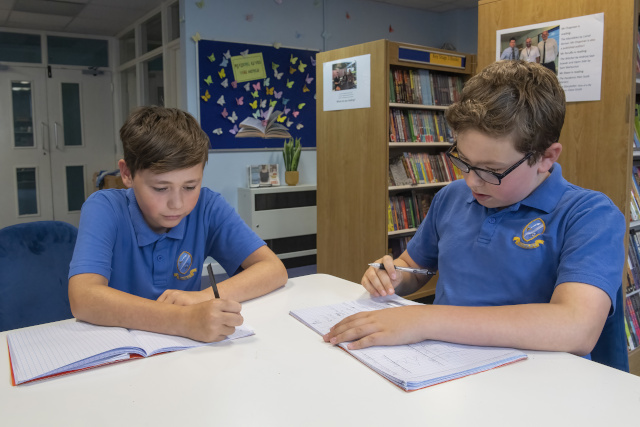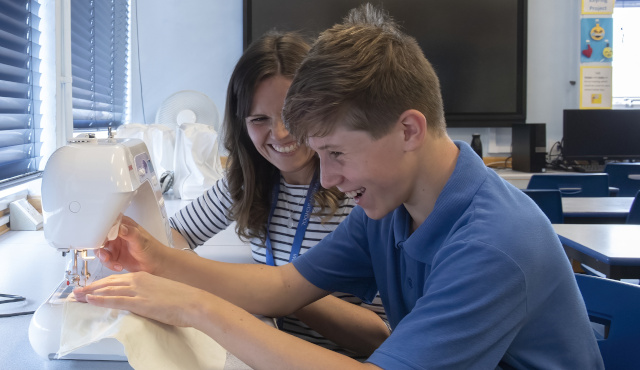Curriculum Intent
At Weobley High School we are determined that every one of our pupils has access to an ambitious,  inclusive and broad curriculum which meets their individual needs and aspirations. This is at the heart of our uncompromising vision for each pupil’s learning journey.
inclusive and broad curriculum which meets their individual needs and aspirations. This is at the heart of our uncompromising vision for each pupil’s learning journey.
The following principles underpin our approach to curriculum planning, design and implementation:
We aim to:
- provide a broad and balanced curriculum which is truly inclusive, comprehensive and accessible to all pupils;
- develop a powerful, intellectual and rigorous curriculum, which is designed to provide the core knowledge, skills, and cultural capital that will become the foundation of pupils’ experience and success in life;
- enrich pupils’ ambition and love of learning and equip them with the skills, knowledge and cultural capital they need to access aspirational post-16 pathways and the responsibilities and experiences of later life;
- provide a curriculum which is coherent and sequential so that new knowledge and skills build on what has been taught, to secure strong pupil outcomes;
- create opportunities for pupils to gain key subject knowledge, hone transferable skills and learn how to be successful;
- afford opportunities for all pupils to develop the high level of literacy and numeracy required for success in the wider curriculum and in adult life;
- cultivate a strength of character, and resilience that will help pupils to make well-informed choices and overcome future challenges;
- develop pupils who are well-informed, curious and independent citizens;
- provide opportunities for learning outside the classroom; raising aspirations and increasing pupils’ appreciation of subjects beyond just examination content;
- create confident pupils with high aspirations who are able to live safe, healthy and fulfilling lives and foster a love of learning;
- reflect our priorities of wellbeing, good physical and mental health and a strong sense of belonging;
- be informed by evidence, theory and research e.g. utilising cognitive science strategies to help pupils retain and recall knowledge to allow future learning;
- develop excellent pedagogy across all subjects;
- provide a curriculum which creates happy, inquisitive learners who enjoy and engage with their learning every day and in every lesson.
- To reflect the content of the National Curriculum.
Curriculum Implementation
- The curriculum is driven by the leaders of the school, they decide the core knowledge and skills
 to be taught and in what order. The curriculum is shaped by each department’s principled vision for their subject.
to be taught and in what order. The curriculum is shaped by each department’s principled vision for their subject. - Leaders carefully plan to ensure that appropriate knowledge and skills build upon what has been taught previously and are carefully developed before application into more challenging and complex situations, appropriate to the different curricular end points. Content is sequenced to ensure components of knowledge lead to conceptual understanding.
- Our curriculum is delivered by ensuring that pupils’ knowledge and skills are developed over time, through effective teaching which draws upon retrieval practice to help students to remember and be able to do more, so that by definition, they can make stronger progress. The School sequences learning in a way that helps pupils to use their prior knowledge and skills to make progress and achieve more over time.
- At each stage it ensures pupils have secured the knowledge they require to progress to future learning. Opportunities are provided for pupils to practice what they have learnt so they can deepen their understanding in each subject.
- Our curriculum is challenging, aiming to support pupils towards outstanding outcomes and developing in them the skills needed to be successful at each stage.
- We aim to develop confident and resilient learners equipped with what they need to take their next exciting and ambitious steps.
- We provide pupils with the widest range of experiences possible, building cultural capital; inspiring and enabling them to make a lasting and positive contribution to future societies
- We have clear methods to check what pupils know, can do and understand. Our assessments quickly address gaps in pupils’ knowledge and understanding.
- We aim to meet the academic needs of all learners every lesson, we are ambitious for all our pupils.
- To ensure that all pupils are safe and understand how to stay safe.
- We provide high quality internal and external professional development for staff, including regular teaching and learning meetings. We have high expectations of teachers and expect teacher knowledge to be consistent within each department.
Impact
At Weobley High School we use a range of measure to evaluate the impact of the curriculum.
These include:
- Progress measures using formative and summative assessment – 3 grade reviews for each year group
- National performance data about pupil progress and attainment
- Subject leader work scrutiny
- Monitoring of pupil well-being
- Monitoring the impact of interventions
- Reviewing behaviour and attitudes to learning
- Monitoring of EHCP targets
- Reviewing attendance data
- Pupil surveys
- Parental feedback/surveys
- Year 9 Curriculum Interviews
- Observation of pupil engagement during drop-ins, lessons observations and learning walks
- Use of destination data
- Involvement in extra curriculum activities.
Curriculum Organisation
Key Stage 3 (Year 7 to Year 9)
When pupils are admitted to the school they will be placed into registration groups. The placement  of pupils in these groups will be decided after consultation with our primary colleagues – taking into account such factors as ability, friendship groups, personality, etc. For teaching purposes most pupils are grouped by ability although this may not happen immediately. The criteria used to group pupils is their ability as indicated in the Key Stage 2 SATs as well as the perception of their respective primary schools. We visit every primary school to ensure that this important transition runs as smoothly as possible and that we have all the information we require. The composition of the teaching groups is regularly reviewed and children are sometimes moved between teaching groups depending on their progress. As pupils progress through Key Stage 3 they will continue to study a broad and balanced range of subjects which is based primarily around the National Curriculum. Throughout this Key Stage, pupils will therefore study: English, Mathematics, Science, Art & Design, Citizenship, Design Technology, Drama, Geography, History, Computing, Modern Foreign Languages, Music, Physical Education, Religious Education and Relationship and Sex Education (RSE) Pupils will find that they start preparing for GCSE courses in Year 9, particularly in core subjects. It is at this stage when we begin to ‘tailor’ each pupil’s curriculum to their individual needs and aspirations. This is a lengthy but necessary process. This includes parent meetings, questionnaires, staff presentations and an individual ‘Curriculum Interview’ with the headteacher. Following this process a curriculum tailored to the specific needs of each cohort is designed and implemented. These new courses then start straight after half-term of the summer term in Year 9 when the pupils move into Key Stage 4.
of pupils in these groups will be decided after consultation with our primary colleagues – taking into account such factors as ability, friendship groups, personality, etc. For teaching purposes most pupils are grouped by ability although this may not happen immediately. The criteria used to group pupils is their ability as indicated in the Key Stage 2 SATs as well as the perception of their respective primary schools. We visit every primary school to ensure that this important transition runs as smoothly as possible and that we have all the information we require. The composition of the teaching groups is regularly reviewed and children are sometimes moved between teaching groups depending on their progress. As pupils progress through Key Stage 3 they will continue to study a broad and balanced range of subjects which is based primarily around the National Curriculum. Throughout this Key Stage, pupils will therefore study: English, Mathematics, Science, Art & Design, Citizenship, Design Technology, Drama, Geography, History, Computing, Modern Foreign Languages, Music, Physical Education, Religious Education and Relationship and Sex Education (RSE) Pupils will find that they start preparing for GCSE courses in Year 9, particularly in core subjects. It is at this stage when we begin to ‘tailor’ each pupil’s curriculum to their individual needs and aspirations. This is a lengthy but necessary process. This includes parent meetings, questionnaires, staff presentations and an individual ‘Curriculum Interview’ with the headteacher. Following this process a curriculum tailored to the specific needs of each cohort is designed and implemented. These new courses then start straight after half-term of the summer term in Year 9 when the pupils move into Key Stage 4.
Key Stage Four (Year 10 and Year 11)
All pupils continue to study English, Mathematics, Science, Physical Education, Religious Education, Computing, Citizenship (including Careers) and Relationship and Sex Education. We also offer a broad range of option subjects which are studied to GCSE level or an equivalent qualification such as OCR National. We review these courses every year and ensure that we are offering the most suitable and appropriate qualification in each subject. A small number of students may also access our ASDAN course which focuses on developing Key Skills.
The option subjects available include Art, Child Development, Computer Science, Dance, Design & Technology, Drama, Food Preparation and Nutrition, French, Geography, German, History, ICT, Music and Sport.
At Key Stage 4, an ‘Express’ Group of pupils is identified. These pupils study English, Mathematics and RE on an accelerated programme and aim for the very highest GCSE grades. Also, pupils with an aptitude for Science, who have achieved a high threshold at Key Stage 3 and make appropriate progress at Key Stage 4 will also be placed in an Express group and will have the opportunity to study for separate GCSEs in Biology, Chemistry and Physics.
We ensure that all pupils are able to access the full range of subjects to achieve the English Baccalaureate. This is a broad and academic set of subjects which keeps young people’s options open for further study and future careers. In order to do this, pupils are required to study English Language, English Literature, Mathematics, Double (or 2 separate) Sciences, one Humanities subject (History or Geography) and one Modern Foreign Language. All pupils are encouraged to follow the English Baccalaureate curriculum and the majority will opt for these subjects.
Please contact a member of the Senior Leadership Team via the School Office if you require any further information about our curriculum.

